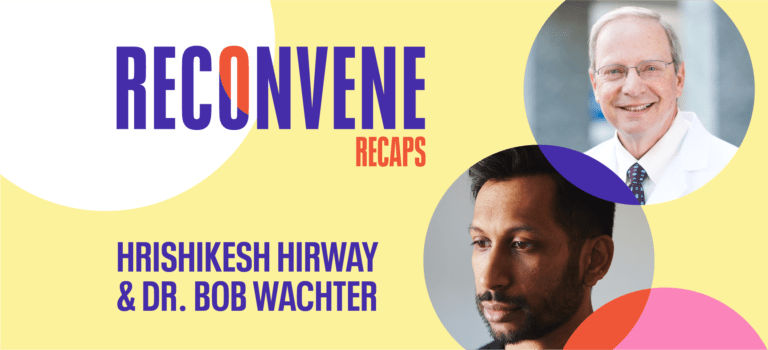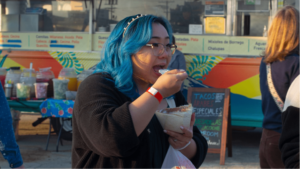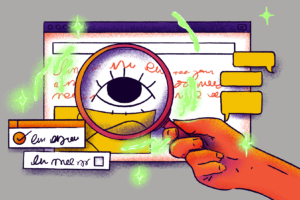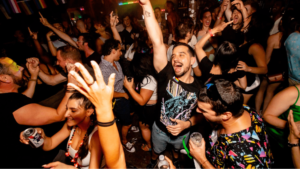Eventbrite hosted the RECONVENE summit in May 2021, bringing together thousands of event producers. We’re sharing key takeaways from popular sessions – on topics like safely returning to in-person events, the future of virtual, and best practices for growing your audience – on our blog and our RECONVENE Recaps hub.
Dr. Bob Wachter has tickets to a James Taylor concert at the Chase Center in San Francisco, which was originally supposed to be held during the pandemic. He’s not sure when it’s rescheduled for, but he knows he’ll be in the audience.
“I’ll be thrilled to be there,” said Wachter, chair of the department of medicine at the University of California, San Francisco. That’s in large part thanks to the “miraculous” COVID-19 vaccines. “They’re better than any of us could have expected,” he said. “If you’re vaccinated, you’re really safe. If you’re unvaccinated, I think you still need to act differently.”
During Eventbrite’s RECONVENE summit, Wachter talked with Hrishikesh Hirway, creator of Netflix’s “Song Exploder,” for a keynote discussion about the path to safely resuming events.
Here are four takeaways for event creators (and patrons).
Watch Dr. Bob Wachter and Hrishikesh Hirway’s full talk below:
https://www.youtube.com/watch?list=PLQZ3lb89nPv6XyzgdqBjkmygWaEzhTbe-&v=afY0FS4aMoM&feature=emb_title
1. Encouraging vaccination is crucial as events return
If you’re fully vaccinated against COVID-19, you can feel really good about attending events again, Wachter said.
However, he noted that there are a couple reasons why vaccinated people might want to continue wearing masks in crowded situations: Though the odds are low, even those who develop a mild case of the coronavirus could still end up struggling with long COVID months down the road. There’s also the possibility that someone who’s vaccinated could still transmit the virus, including to, say, a high-risk person they live with.
Wachter isn’t overly concerned about potentially dangerous virus variants, but he does worry about the vaccine rate in the U.S. stalling. “The only way we get back to normal is widespread vaccination,” he said. In the future, he added, we might see virus outbreaks during the winter, but most likely only in regions with low vaccination rates.
2. Prioritise outdoor events over indoors
[cta id=”228563″]
For the most part, event guidelines now drill down to one question: Is the event indoors or outdoors?
Outdoor events are incredibly safe, Wachter said. In San Francisco, where he lives, the rate of community transmission is so low that when he’s outside, he feels “safe pretty much around anyone, including unvaccinated people who are not wearing a mask.”
He’s more concerned about indoor events, particularly when there’s poor ventilation – and unvaccinated people who aren’t wearing masks. (The Centers for Disease Control and Prevention guidelines require unvaccinated people to wear masks indoors, but that’s often based on an honour system and can be difficult to enforce.)
If Wachter attends an event indoors, and there’s little social-distancing and lots of people aren’t wearing masks, he’ll choose to put his on to ensure he stays safe.
3. Prepare to make a ‘hard’ decision about checking vaccination status
Deciding whether or not to check patrons’ vaccination status is in many ways an ethical decision, Wachter said. Event organisers “have a responsibility to their patrons to create the safest environment that they can practically,” he said. But that doesn’t mean dashing around a venue, instructing people to put on masks: “You’re not the police.”
Wachter acknowledged that deciding whether to require proof of vaccination will be challenging for event creators and venue operators. That’s especially true given that people can buy knock-off vaccination cards online, which means one can’t be positive that proof of vaccination is legitimate. “A little of the checking is theatre,” he said. “You’re checking, but you can’t be 100% sure.”
4. Practice kindness and patience
When Wachter finally attends that James Taylor concert, he’ll probably wear a mask – just to help ease any lingering anxiety he has about being in a crowd again. “The rational part of my brain says it’s going to be riskier to drive down there than it is to be there,” he said. But he pointed out that we all have different thresholds for what we’re comfortable with, and adjusting to “normal life” again will take time.
“We have to be kind and permissive with each other,” he said. “We’ve gone through a collective mass trauma.”
Start planning your next event here.





